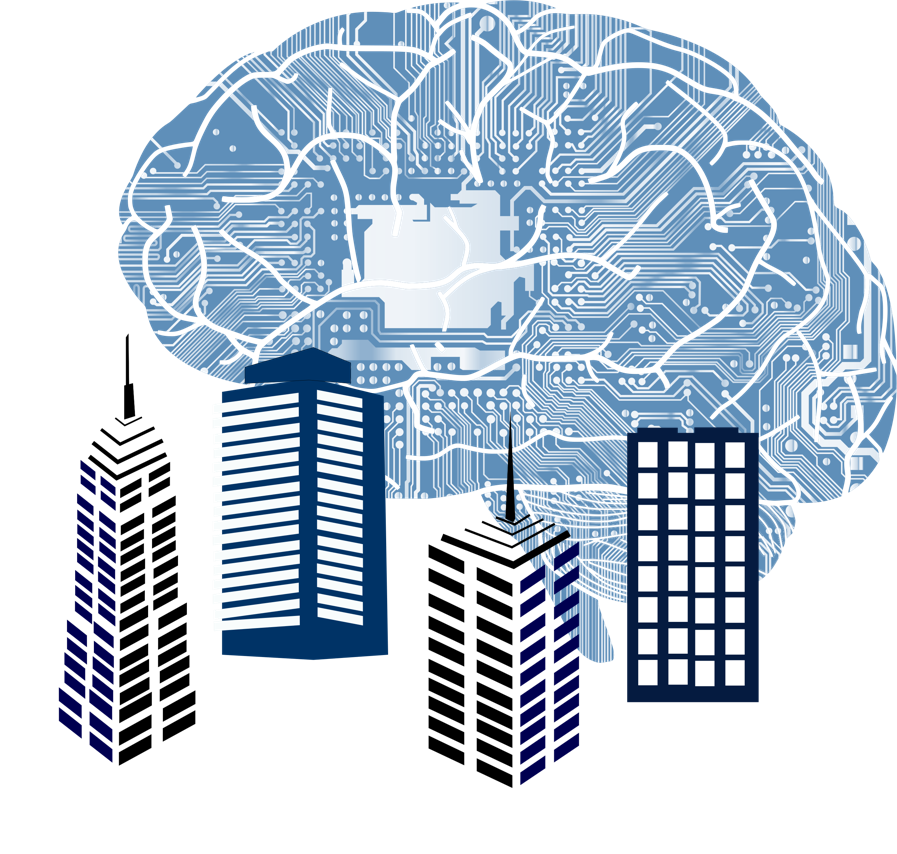One thing most pundits seem to agree on is that any organization designed around industrial age principles needs to transform into a digital enterprise if it is to survive and thrive in the decades ahead. “According to the prediction of IDC Futurescapes,” reports digital enterprise consultant Ronald van Loon (@Ronald_vanLoon), “two-thirds of Global 2000 Enterprises CEOs will center their corporate strategy on digital transformation.”[1] Here’s the rub: Becoming a digital enterprise means different things in different commercial sectors. There is no single model to follow. Digital enterprises often touted as poster children include Amazon, Uber, iTunes, Netflix, and Airbnb. Each in its own way has disrupted a traditional industry. Two things they have in common are the use of big data and leveraging artificial intelligence (AI).
Big Data is the Sine Qua Non of the Digital Enterprise
“Big Data is likely to be a key element in the digital transformation taking hold in the enterprise,” writes Arthur Cole (@acole602), “but there are still questions as to how it will influence future business processes and what steps to take now to ensure it provides optimal support in a fast-changing economy.”[2] Actually, Cole’s assertion is a bit of an understatement. It’s not just “likely” that big data will play a key role in digital transformation without data there is no digital enterprise. He reports a recent report by Verizon and the Harvard Business Review, found, “52 percent [of surveyed businesses] expect Big Data to lead to new services for the Internet of Things (IoT), while 44 percent say it will transform their business models.” Surprisingly, however, the report also found, “Upwards of 78 percent [of those businesses] are currently leveraging only limited amounts of IoT data or none at all, while an equal percentage say they need new networking technologies to fully implement Big Data operations. In fact, most Big Data initiatives today are being carried out on an ad hoc basis, not as part of a strategic imperative.” Michael Pumper (@mike_pumper), a senior consultant at Sogeti Labs, states bluntly, “Tomorrow’s world is all about data, and today’s companies should consider becoming data-centric to remain relevant.”[3]
Pumper goes on to note that most companies are primarily either data providers or data consumers (although most companies are a bit of both). “Data Providers,” he writes, “may specialize in data that is proprietary, or otherwise hard to acquire. … Data consumers are companies that take large data sets and extract value from them.” Deciding whether your company is primarily a data provider or data consumer makes a huge difference in the business model you pursue during digital transformation. “Being successful in tomorrow’s world,” Pumper asserts, “no longer means having the best product at the best price. Instead, being able to provide robust data or turn big data sets into value will be a very lucrative business model. Companies looking to stay relevant will need to consider the importance of data centricity moving forward, or risk being left behind.” Data, by itself, is only potentially useful. If it lies fallow in databases (i.e., remains unanalyzed), it’s as useless as a seed lying fallow in a field.
Cognitive Computing and the Digital Enterprise
I believe most successful digital enterprises will eventually rely on cognitive computing technologies, a branch of AI, to foster a more secure future. I define cognitive computing as a combination of semantic reasoning (i.e., the use of machine learning, natural language processing, and ontologies) and computational intelligence (i.e., advanced analytics). This type of cognitive computing cannot only deal with ambiguous problems but can put them into context. Beth Stackpole (@bethstack) agrees that AI, in one form or another, is going to play a central role in the future business environment. She writes, “Companies are starting to leverage artificial intelligence and machine learning technologies to bolster customer experience, improve security and optimize operations.”[4] She continues:
“Despite the hype, it’s still early days for AI, especially in the enterprise. The technologies are still evolving, although much more rapidly today, thanks to nearly unlimited computational power, the collection of vast amounts of data and advances in neural network capabilities. While the terms AI, machine learning and deep learning are used somewhat interchangeably, there are differences among them, and failure to grasp those differences can lead to confusion.”
For a quick primer on the different types of AI, read my article entitled “Defining Terms in the World of Artificial Intelligence.” As I note in that article, “Having a basic understanding of what these terms means is important because we are entering an era that will largely be defined by smart, AI-related technologies.” Stackpole adds, “One factor holding up the spread of AI in the enterprise is the learning curve, because most IT leaders and executives still don’t fully comprehend the nuances of the AI stack, much less understand how to apply the technologies to solve real business problems, experts say.” According to van Loon, ignorance is no excuse for moving forward. He insists, “A major part of [any digital transformation] strategy should include machine-learning (ML) solutions. The implementation of these solutions could change how these enterprises view customer value and internal operating model today. If you want to stay ahead of the game, then you cannot afford to wait for that to happen. Your digital business needs to move towards automation now while ML technology is developing rapidly.” He goes on to describe the nuanced differences between AI and ML. He doesn’t, however, address the fact that cognitive computing platforms include machine learning along with a number of other benefits that can help with the digital transformation process. For example, cognitive computing platforms can gather, integrate, and analyze both structured and unstructured data — a critical capability for a digital enterprise. Cognitive computing platforms can also be used to automate processes and generate actionable insights for decision makers. Both of these capabilities are necessary if an enterprise wants to operate at today’s speed of business.
Summary
Even though we remain in the infancy of digital transformation, Cole insists that “doesn’t mean the enterprise has time to dawdle.” What’s the hurry? According to Cole, “New businesses are sprouting up every day providing a wealth of services on brand new scale-out, analytics-optimized infrastructure, with none of the technological or cultural baggage that weighs down the traditional enterprise. To compete, today’s business needs not only new tools at its disposal, but a new way of carrying out its core functions.” Tom Davenport (@tdav), a professor of IT and management at Babson College, told Stackpole, “You should start by identifying which business processes have cognitive bottlenecks and where fast, accurate decision-making can make a difference, especially those cases that involve too much data for humans to analyze or where it’s too expensive to hire people with specific expertise.” Van Loon adds, “Businesses can step into the new age of ML and begin implementing the technique by letting the machines use Big Data derived from various sources, e.g., images, documents, IoT devices, etc., to learn.” I believe business leaders will find a complementary and beneficial relationship between the adoption of cognitive computing technologies and the implementation of their digital transformation strategies.
Footnotes
[1] Ronald van Loon, “How Machine Learning is Revolutionizing Digital Enterprises,” Datafloq, 12 April 2017.
[2] Arthur Cole, “No Digital Transformation Without Big Data,” IT Business Edge, 12 April 2017.
[3] Michael Pumper, “Investing in Data: How Tomorrow’s Companies Profit from Data Centricity,” Information Management, 24 October 2016.
[4] Beth Stackpole, “Why smart enterprises are thinking AI,” CIO, 11 April 2017.





